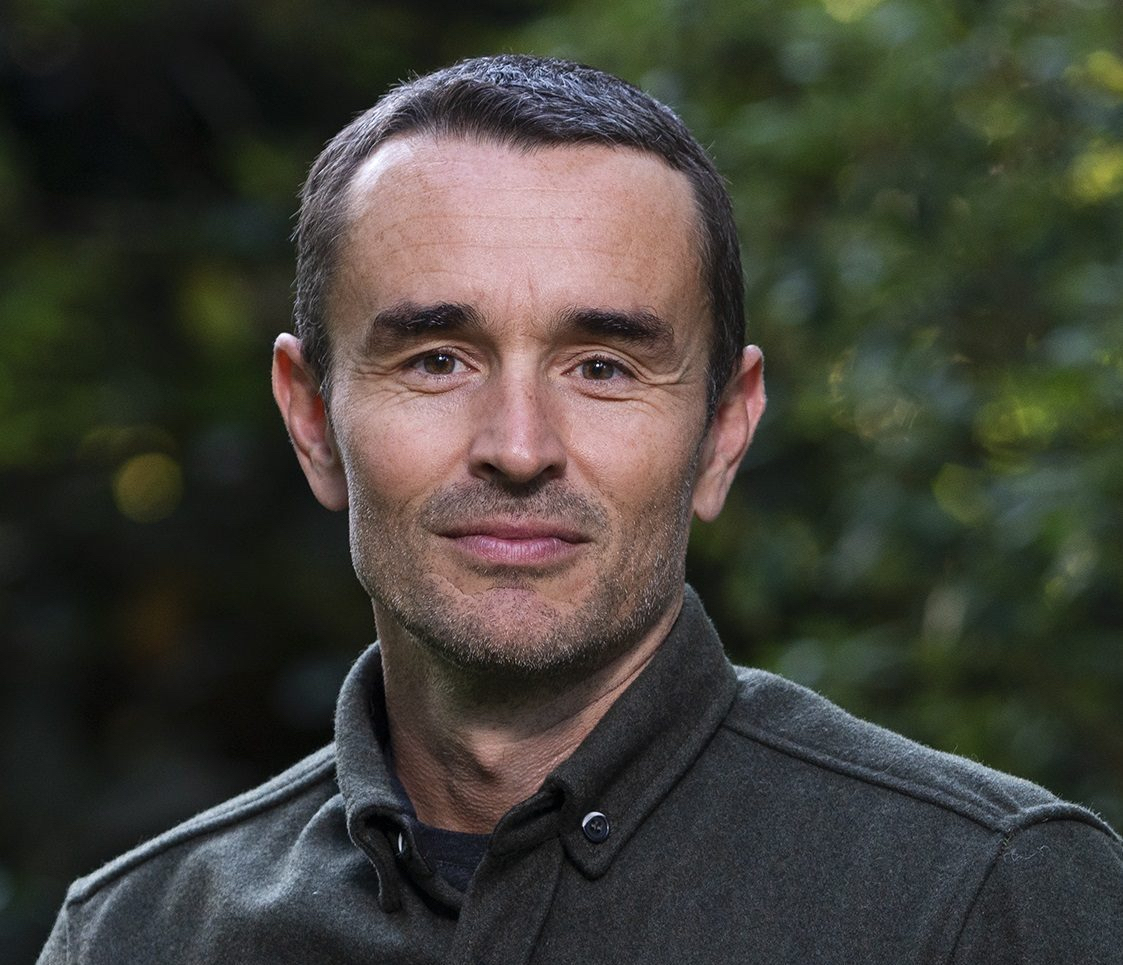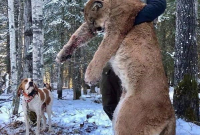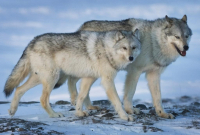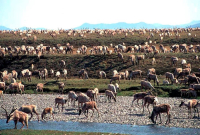Support strong Canadian climate journalism for 2025
Trophy hunting of wolves, grizzly bears, and cougars may endanger hunters as well as the animals they target, a new study suggests.
The eroding social licence in B.C. to hunt large predators for sport rather than sustenance threatens public support for the majority of hunters, most of whom don’t endorse trophy hunting, said lead author Chris Darimont.
“The minority of hunters who kill predators for trophy can tarnish the food-hunting majority,” said Darimont, science director at Raincoast Conservation Foundation and a professor at the University of Victoria.
The research team explored how the public, much influenced by social media, is increasingly intolerant of the trophy hunting of large charismatic carnivores in North America and Europe. Poor social licence, in turn, increases pressure on politicians and other stakeholders to align policy with wider societal values.
Polls in B.C. consistently show strong public opposition — more than 80 per cent — to trophy hunting, even in rural areas and among hunters, Darimont said.

Hunters make up about 10 per cent of B.C.’s population, and only a small number of that group kill large carnivores as trophies, he added.
But public distaste for trophy hunting could hamstring hunting organizations’ ability to partner with other stakeholder groups on important conservation initiatives, such as the preservation of wildlife habitat, Darimont said.
British Columbians generally support hunting for food, viewed as a healthy activity that connects people to nature and fosters the next generation of environmentalists, Darimont said, noting he is a hunter himself.
Conversely, strong opposition to trophy hunting is based around ethical and animal welfare concerns, he said.
“The public think it's cruel, they think it's wasteful, and they think it's unnecessary,” Darimont said.
“That’s why we see such different levels of support for hunting something like a deer versus something like a wolf or a mountain lion.”
And science showing populations of large carnivores aren’t threatened by trophy hunting is entirely beside the point, Darimont said.
“Science might be important in estimating whether there are enough wolves to kill,” he said.
“But only societal values and attitudes can give insights into whether trophy hunting is an activity that is tolerated by us.”
The B.C. government’s decision to ban grizzly bear hunting in 2018 is just one case study in how policy change is provoked by social licence, Darimont said.
“The hunt was banned, not because there was concern too many bears were being killed,” he said.
“The government cited the activity didn’t align with the values of most British Columbians.”
Social media is an increasingly powerful tool in getting attention from policymakers, Darimont said.
Widespread condemnation from both social and traditional media occurred with the killing of popular animals, such as Cecil the lion in Africa, or the beloved B.C. wolf Takaya, who lived alone for many years on a small island near Victoria.
As a result, Takaya has emerged as an ambassador in new campaigns against wolf hunting, particularly in B.C., Darimont noted in the study.
Hunters may worry lack of support for trophy hunting could lead to the eventual ban of all hunting — even for food purposes, the study said.
But to maintain their current levels of public goodwill, it will be key for food hunters to engage in transparent and co-operative dialogue with other stakeholders rather than opting for a hostile, defensive stance.
“A few hunters argue that healthy populations of predators should be fair game, and that any opposition to predator hunting is somehow unscientific,” Darimont said.
But that argument fails to acknowledge how resource management policy actually evolves, he said.
“The reality is that only values — not science — can dictate whether an activity is tolerated by society.”
Rochelle Baker / Local Journalism Initiative / Canada’s National Observer







Comments
Thank you for this story. The facts revealed by Dr. Darimont's research are critical if we want to take protection of nature seriously.
Count me among that majority that thinks trophy hunting is cruel, wasteful and unnecessary. For that matter, I'm not sanguine about any confidence in population levels--I've seen too many fisheries fail after repeated assurances that catch levels were just fine.
In Nature's Half, humans should only use stone-age technology for hunting. However, most predators are not killed for sport but to protect livestock. With Wolves made scarce by ranchers, Deer proliferate, to the benefit of meat hunters. There are also Trophy deer, and for a large cash injection into the rural economy, you can shoot a captive Elk bred for the purpose, and barely able to lift his own head. Perhaps using guns resolves many lives of frustration for avid hunters.
Reading the headline about trophy hunters shooting themselves in the foot, my mind made an immediate leap to the stories coming out of Africa about so-called "rogue" elephants who have deliberately targeted humans, in apparent revenge for the decimation of their families by poachers. Too many Africans have themselves been targeted by genocidal insurgencies not to attribute such a mind set to elephants.
If there are unprovoked attacks on humans by North America's top predators, it could, or perhaps should, cause all hunters to consider motives of revenge by their prey. The infamous helicopter hunters may think themselves immune, but if they are responsible for attacks on hikers, etc. they - and governments - are going to have to re-think their murderous, ecocidal behaviours.